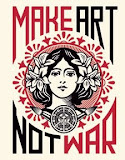
"Nothing can inspire an artist more than being challenged. The artist in question is Nikola Parov, New York based and playing in the world-famous formation RIVERDANCE."
Nikola Parov is a featured artist in the Riverdance Orchestra, playing a wide variety of instruments: kaval, gadulka, bouzuki and gaida. As well as recording with Bill Whelan, Andy Irvine, Zsarátnok, and Márta Sebestyén and composing dance music for the Hungarian State Folk Ensemble.
“Budapest producer, Nikola Parov, not only constructs modern chamber-folk arrangements... but also plays a staggering array of instruments himself.”
1. Anonym
2. Trance Danubius
3. Diva's Smile
4. Mayo Woman
5. Satyr's Night
6. Tsami
7. Ritual
8. Passio
Musicians:
Nikola Parov - vocals, acoustic guitar, oud, bouzouki, gaida, kaval, gadulka, flute, tin whistle, clarinet, piano, keyboards, programming, percussion
Berecz András - vocals
Des Moore - electric guitar
Zoltán Lantos - violin
Mairtin O'Connor - accordion
Davy Spillane - pipes
Kenneth Edge - soprano saxophone
Ferenc Kovács - trumpet
Ottó Rácz - oboe
Noel Eccles - drums, timpani, percussion
Link
Címkék: Hungarian, Nikola Parov, World

"The second record by Montreal's Black Ox Orkestar places the group at the forefront of a 'new Jewish music' that rejects contemporary fusion and musty nostalgia in equal measure. With backgrounds in folk, punk-rock and free jazz, the group's four musicians distill Balkan, Central Asian, Arabic and Slavic sources into a coherent, impassioned sound that gives teeth to old Jewish songs. Never relying on museum-piece reverence or an obvious, forced collision of musical forms, Black Ox is rewriting a Yiddish songbook in ways that sound organically anchored to tradition without being suffocated by it. Nisht Azoy (Not Like This) builds dramatically on Black Ox's debut (Ver Tanzt?), striking a similar balance between vocal and instrumental tunes, but with more intensity, mystery, and a readiness to stretch things out, whether in the incantatory opener "Bukharian" or the clomping crescendos of "Az Vey Dem Tatn" and "Tsvey Tabelakh". Further upping the ante with greater use of percussion and group singing, the band's entirely acoustic instrumentation pumps and pulses with explosive energy and emotion. Radwan Moumneh captures the 4-piece band (at Montreal's Hotel2Tango studio) with a detailed warmth and authority, and a large cast of guest players expands the group to bona fide orchestral size on "Tsvey Tabelakh". The slow plaintiveness of vocal songs "Ikh Ken Tsvey Zayn" and "Golem" rank among the group's most spine-tingling, mesmerising moments. "Ratsekr Grec" summons a Balkan dance rhythm in one of the album's more overtly traditional arrangements, adding a flurry of colliding horns down the home stretch. Taken as a whole, the cycle of songs on Nisht Azoy further opens up a world, inspired by Jewish diasporic culture and politics, that challenges conventional appropriations and forges music that is highly original, deeply felt and very much alive. As the band writes: "Nisht Azoy is the melancholy and uncompromising sound of our mongrel music splitting at the seams, the boat creaking as we drag our friends on board. As we sing in Tsvey Taybelakh: 'When you come to a strange city, my love / Think of my words / When you come to deep waters, my love / You will not drown in sorrow / When you come to great fires, my love / You will not be burnt in sorrow.'"
1.Bukharian
2.Az Vey Dem Tatn
3.Violin Duet
4.Ikh Ken Tsvey Zayn
5.Ratsekr Grec
6.Tsvey Taybelakh
7.Dorbriden
8.Golem
Link
Címkék: Black Ox Orkestar, Klezmer, World
























